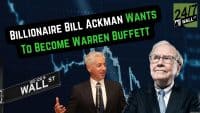
The U.S. Securities and Exchange Commission (SEC) charged a North Carolina-based investment adviser with defrauding investors. This advisor was secretly steering portions of real estate-related investments into deals with companies that he owned or operated himself.
The agency alleged that Richard W. Davis Jr. breached his fiduciary duty and took no steps to disclose or ameliorate the conflicts of interest involved with using investor money to enter into transactions with entities he beneficially owned or controlled.
Furthermore, the SEC alleged that Davis made false or misleading statements to investors before and after they made their investments, failed to inform investors of their losses as his companies failed to pay the loans and improperly received at least $1.5 million from bank accounts commingling investor funds when he was only entitled to less than $150,000 in management fees.
Stephen L. Cohen, associate director of the SEC Enforcement Division, commented:
We allege that Davis failed to inform investors about his own companies being the borrowers of the real estate loans funded with their investments. He then doubled down on his deception by falsely telling investors their investments were growing while his companies were not even repaying the loans.
Davis has agreed to a settlement subject to court approval with disgorgement plus interest and penalties to be determined by the court at a later date.
According to the SEC’s report:
- Davis sold interests in two unregistered pooled investment vehicles named DCG Commercial Fund I LLC and DCG Real Assets LLC. He defrauded at least 85 people who invested a total of approximately $11.5 million.
- Davis told Commercial Fund investors that their money would be used to fund short-term fully secured loans to real estate developers. He hid the fact that two of the four projects invested in by the fund were his own companies.
- Investors suffered losses because the loans made by the funds were never paid in full, yet Davis failed to inform the investors of this. Even after he declared one loan to be in default, he failed to reappraise the value of the loan and reflect that change in the shareholder’s account statements.
- Davis similarly failed to inform Real Assets investors that he transferred to his own entities at least $7.7 million of the $9.8 million he raised from them. From there the money was spent or transferred to additional entities he owned or controlled until the entire $7.7 million was depleted.
- Davis falsely reported to investors that their investments were growing in value year-after-year, and falsely claimed that the Real Assets fund held more than $10 million in assets. But his claims were based on his own speculative valuations of the fund’s assets and not a product of any tabulation of the fund’s true net asset value.
The Average American Has No Idea How Much Money You Can Make Today (Sponsor)
The last few years made people forget how much banks and CD’s can pay. Meanwhile, interest rates have spiked and many can afford to pay you much more, but most are keeping yields low and hoping you won’t notice.
But there is good news. To win qualified customers, some accounts are paying almost 10x the national average! That’s an incredible way to keep your money safe and earn more at the same time. Our top pick for high yield savings accounts includes other benefits as well. You can earn up to 3.80% with a Checking & Savings Account today Sign up and get up to $300 with direct deposit. No account fees. FDIC Insured.
Click here to see how much more you could be earning on your savings today. It takes just a few minutes to open an account to make your money work for you.
Our top pick for high yield savings accounts includes other benefits as well. You can earn up to 4.00% with a Checking & Savings Account from Sofi. Sign up and get up to $300 with direct deposit. No account fees. FDIC Insured.
Thank you for reading! Have some feedback for us?
Contact the 24/7 Wall St. editorial team.





